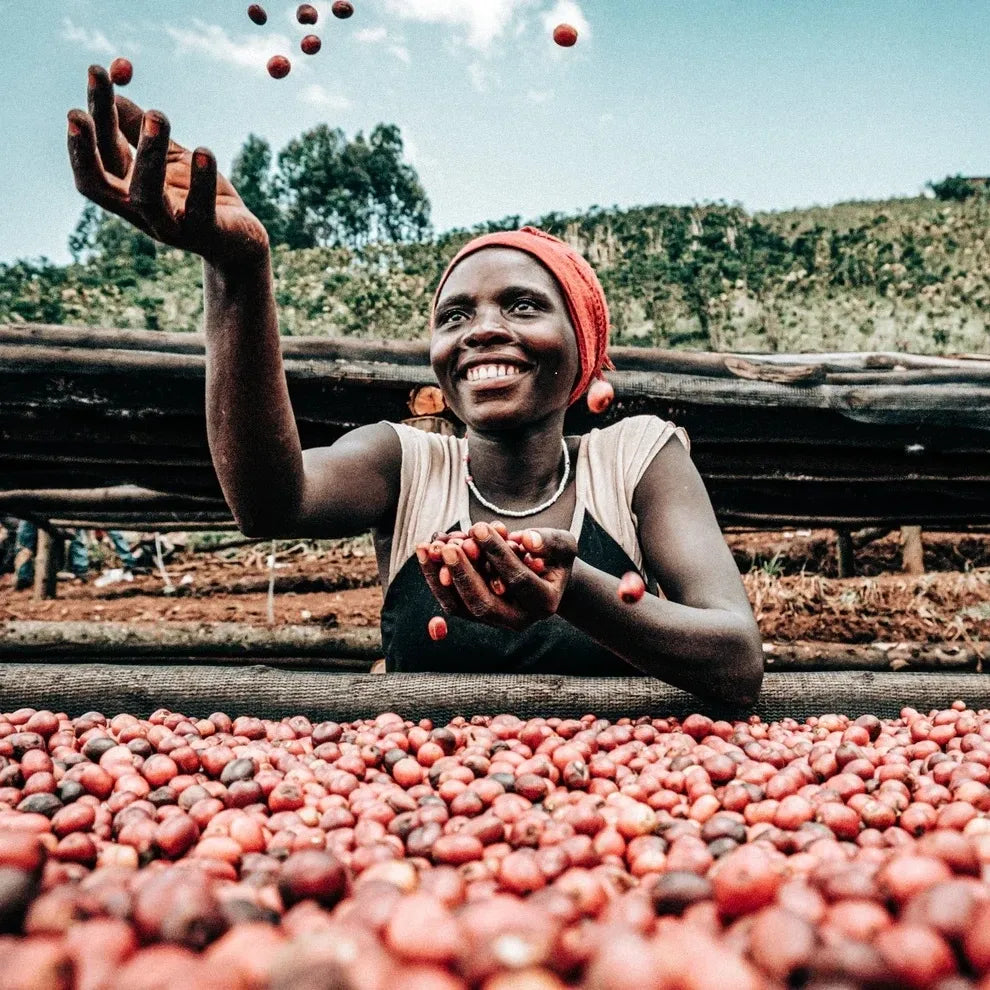1
/
of
1
Surrey Hills Coffee
Burundi Masenga Hill - Filter
Burundi Masenga Hill - Filter
Regular price
£10.75 GBP
Regular price
Sale price
£10.75 GBP
Unit price
/
per
Taxes included.
Couldn't load pickup availability
This is an excellent coffee from Burundi.
Taste notes: Bittersweet chocolate, a hint of cola, well rounded liquorice, and a touch of spices. Sweet and mellow, with a slight acidity. We roast it light to enhance the flavour fully.
Origin: Masenga Hill, Burundi
Region: Bujumbura
Processisng partner: Migotti Coffee Company
Process: Washed
Altitude: 1700-1900 m.a.s.l.
Flavour: Bittersweet chocolate, a hint of cola, well rounded liquorice, and a touch of spices.
SCA score: 84
Varietal: Red Bourbon
Omwani are working in partnership with Burundi-based Migoti Coffee Company and their processing stations to source some of the best coffee across all of Burundi. They have purchased cherries directly from farmers dispersed across the mountains overlooking Lake Tanganyika to be processed back at the Migoti Hill washing station. The name “Migoti” comes from a local indigenous tree, which is also the name of the mountain where Migoti built their first coffee washing station.
Coffee farming and production began in Burundi in the early 1900s under Belgian colonial rule, where farmers were forced to grow coffee, the produce was bought and processed by the state and coffee was exported primarily to Europe. The sector was privatised in the 1960s, followed by state control from 1976 to 1991, and then a new wave of privatisation beginning in 1991.
After the civil war in the 1990s, coffee has slowly emerged as a means to rebuild the agrarian sector and to increase foreign exchange, with an increase in investment and a somewhat healthy balance of both privately and state-run coffee companies. However, following the political crisis of
2015 and the subsequent economic crash, the coffee sector has struggled to meet the expectations and potential to stimulate the economic growth of Burundi.
Burundi is among the smallest coffee-producing countries in East Africa, with a population of 10.5 million that is endowed with ideal conditions for
coffee production: elevations of 1500 - 2000 m, Arabica Bourbon coffee trees, abundant rainfall, and approximately 800,000 families who cultivate an average of 150-200 coffee trees per farm. Arabica coffee now represents virtually 100% of Burundi’s national production and the bourbon variety grown at high elevations in Burundi is characteristically “sweet with bright acidity, big body, floral, citrus and spiced with wild notes.” Over the past 25 years, coffee production in Burundi has averaged 26,700 tons
per year.
In 2016 Migoti Coffee Company built a coffee washing station at Migoti Mountain, partnering with industry experts who provided technical
expertise. Coffee trees are owned by the community, and Migoti purchase the coffee cherries directly from the farmers who harvest and deliver the cherries to our station. Over 300 tons of green coffee was produced and exported from Migoti Mountain in 2017, 2018 and 2019 coffee seasons. These harvests have received excellent cupping scores, frequently placing it as some of the best speciality coffee coming from Burundi.
The washing station is operated by a local team of ten permanent staff and over 250 temporary workers who are employed during the coffee season from March to June.
The station manager, Zephyrin Banzubaze, is responsible for managing all of the staff to train coffee farmers, receive and select coffee cherries, process the coffee, oversee the coffee drying process, store and mill the dry parchment coffee and prepare the final green coffee for export. The majority of the temporary staff are women, who work mainly on the raised drying tables, regularly turning the coffee as it dries and removing
defective beans that compromise the coffee quality.
Migoti also assist farmers through ongoing education to prune and properly care for coffee trees, intercrop, plant shade trees, utilize green fertilizers, stabilize soils and natural pest control. The expectation is that by following best farming practices the farmers can increase the yields from their coffee trees by five- to ten-fold.
It is lightly roasted and suitable for all filter brewing methods.
For best results we always recommend purchasing whole beans and grinding fresh at home before brewing. If you don't have a grinder, choose filter or espresso ground from the drop down menu, and we will grind it before packing. Please note that we can't guarantee that it will suit perfectly for the way you brew and/or for your equipment, especially when ground for espresso.


